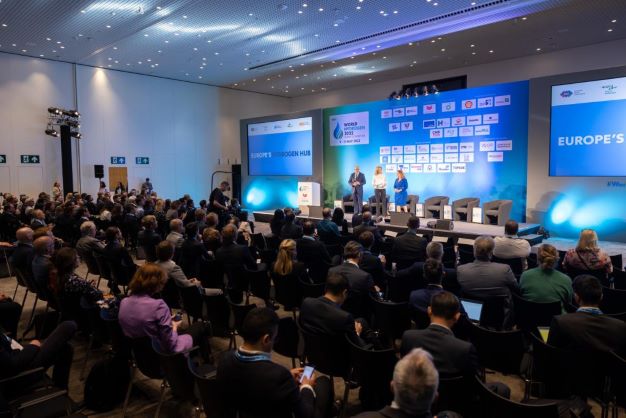Hydrogen Summit Drives Heavy Industry Decarbonization

The Global African Hydrogen Summit: A Catalyst for Decarbonisation
The Global African Hydrogen Summit, set to take place from 9 to 11 September in Windhoek, is expected to play a pivotal role in accelerating decarbonisation across key sectors that are heavily reliant on coal or oil for their energy needs. This summit represents a significant step forward in the global effort to transition towards cleaner and more sustainable energy systems.
Deputy Minister of Industries, Mines and Energy, Honourable Gaudentia Kröhne, recently shared insights with the summit organisers about Namibia’s vision to become a leader in green hydrogen production across Africa. She highlighted the country's strategic approach, which leverages its world-class resources and positioning to drive innovation in the sector. Kröhne stated, “Namibia is not just aiming to export green hydrogen but to create value-added products such as green ammonia and green iron that support decarbonisation worldwide, while building new clean industrial clusters domestically.”
This initiative aligns with broader efforts to reshape the future of African industry through international technology transfer. As a crucial catalyst, this process is enabling the decarbonisation of hard-to-abate sectors and promoting sustainable, green industrialisation across the continent. By bringing advanced and proven solutions, it also supports capacity building, local innovation, and the scaling of clean-energy infrastructure.
In addition, seven countries including Namibia, Egypt, and South Africa will benefit from access to further funding aimed at addressing greenhouse gas emissions from heavy industry. The US$12.5 billion Climate Investment Fund (CIF) will lead this initiative by providing concessional loans of up to US$250 million to each country. These funds are intended to attract additional investments from multilateral development banks, the private sector, and other stakeholders.
Tariye Gbadegesin, Chief Executive of the CIF, emphasized the importance of decarbonising economies in securing long-term prosperity and the jobs of tomorrow. She noted, “The global race to decarbonise industry has begun, and emerging markets are out front.” This sentiment reflects the growing recognition of the need for rapid and effective action to reduce carbon emissions.
Moreover, countries such as China and Japan are contributing their expertise in areas like solar photovoltaic manufacturing, hydrogen storage, and fuel cell development. European partners are also playing a vital role by offering knowledge in wind farm operation, grid integration, and policy frameworks for emerging green markets. This collaborative approach extends beyond hardware, encompassing best practices in training, regulatory harmonisation, and the development of functional trade corridors.
Such efforts ensure that green molecules and electrons produced in Africa can be efficiently traded and exported, supplying global markets and helping to offset emissions in regions where decarbonisation is more challenging or costly. Gbadegesin highlighted the growing momentum for co-creation between African stakeholders and international partners, stating, “It is a testament to the power of shared expertise and vision in building resilient economies, safeguarding the environment, and empowering communities.”
Through these collaborative initiatives, Africa is positioning itself as a key player in the global transition to a low-carbon economy. The focus on green hydrogen and other sustainable technologies is not only driving environmental progress but also creating new economic opportunities and fostering international partnerships. As the continent continues to invest in clean energy and innovative solutions, it is setting a powerful example for the rest of the world.

Comments
Post a Comment